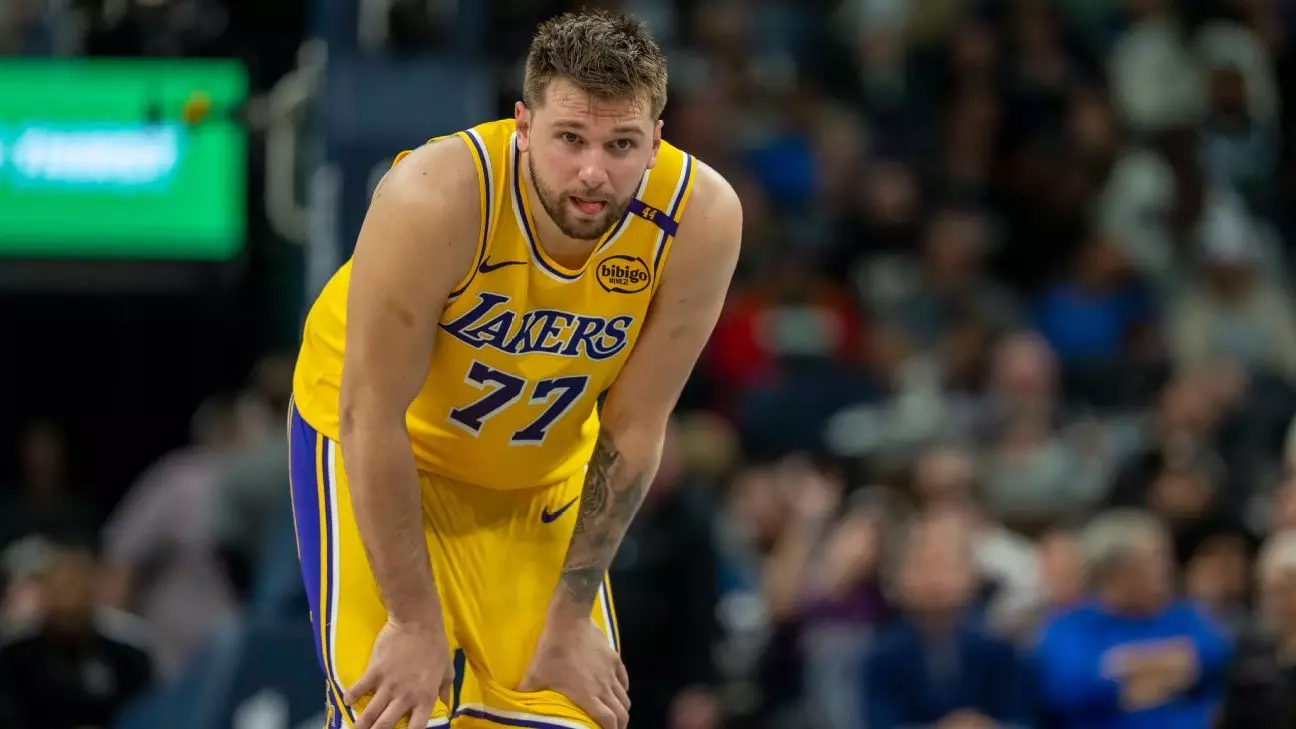In the world of professional sports, one’s physical condition can make or break an entire game; just ask Luka Doncic, who battled a severe stomach ailment leading up to the Los Angeles Lakers’ 116-104 Game 3 loss against the Minnesota Timberwolves. Reports reveal that Doncic was not merely dealing with minor discomfort but was reportedly “vomiting all afternoon” before the game, as shared by Lakers coach JJ Redick. This wasn’t just a slight hindrance; it was a significant hurdle that vastly impacted the outcome of the game. Doncic’s typical prowess, seen in his outstanding postseason averages of 34 points, 10 rebounds, and five assists from the previous two games, was remarkably absent. Instead, he finished the match with a mere 17 points on subpar shooting, a stark contrast that undoubtedly affected his team’s dynamic.
The Weight of Expectations
LeBron James underscored the importance of Doncic’s role when he commented on how it “took a big blow for our team,” noting that the star had consistently delivered exceptional performances since his acquisition. The expectations surrounding Doncic are monumental; he is not just another player on the court but rather a setup artist, a historical scorer, and anchor for the Lakers. Viewing Doncic through this lens magnifies the challenges faced by Los Angeles in his impaired state. With a superstar whose productivity is compromised, the entire team’s strategy must adapt, leaving other players scrambling to fill the void and carry the weight of the game.
Body Language Tells a Different Story
As the game progressed, it became evident that Doncic was not entirely himself. Observations made by teammates like Dorian Finney-Smith painted a concerning picture; Finney-Smith noted Doncic’s paleness and body language suggested he might not even complete the game. Body language can be a telltale sign of weariness in high-stakes situations, and Doncic’s physical appearance resonated with his struggle. Despite an off-night shooting, he still managed to add to his team’s efforts in the second half. This determination displayed resilience, but it leaves fans wondering: how much could he have contributed if he had been in optimal health?
Team Dynamics: More Than Just One Player
Luka’s individual battle, however, wasn’t the sole challenge for the Lakers. The team’s performance was marred by a staggering 19 turnovers that led to 28 points for the Timberwolves. This lack of ball protection is inexcusable, especially considering the stakes. LeBron pointed out the critical nature of making manageable mistakes, asserting that “the more that you make mistakes on top of mistakes…it’s not going to give you an opportunity to be in the best possible chance to win.” The unwavering belief that ‘one player can change everything’ often clouds reality—team dynamics are complex, and turnovers exacerbate the situation.
Looking Ahead: Quick Turnarounds and High Stakes
As both teams prepare for the quick turnaround with Game 4 looming, the focus shifts back to Doncic’s health. Coach Redick expressed hope that Doncic would recover quickly, acknowledging the uncertainty surrounding his condition. The narrative is one of resilience, athleticism, and heart as the season approaches critical junctions. Will Doncic be back to his high-flying self, transforming into the player capable of altering the course of the series? The outlook remains ambiguous, but what stands out is that the Lakers cannot solely rely on one player, no matter how gifted.
In the high-pressure environment of the NBA playoffs, each game is a balance of strategy, execution, and sheer human tenacity. Doncic’s story is one of battling through illness, grappling with expectations, and understanding the cascading effects one player’s performance can have on an entire team. The Lakers must rally as a cohesive unit, overcoming the challenges posed by illness and self-inflicted mistakes if they hope to reclaim dominance in the series.

